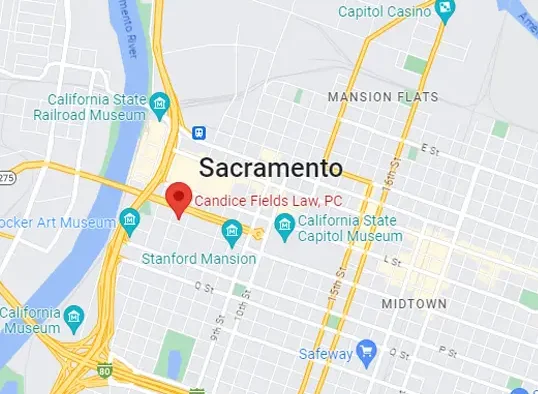What US Businesses Need to Know About Alien Smuggling Laws

Business owners and employers across the United States frequently navigate complex employment regulations, but many remain dangerously unaware of how federal immigration laws—particularly alien smuggling and harboring statutes—can impact their operations. At Candice Fields Law, we've seen numerous businesses facing unexpected federal charges under statutes they never realized applied to their everyday business activities. This blog explores what every US business should understand about these serious federal laws and how to mitigate risk.
8 U.S.C. § 1324: Beyond Border Crossings
When business owners hear "alien smuggling," they often envision clandestine border crossings or human trafficking operations—activities far removed from legitimate business operations. However, federal law casts a much wider net than many realize. Under 8 U.S.C. § 1324, the government can prosecute not just smuggling, but also:
- Harboring undocumented immigrants
- Concealing undocumented immigrants from detection
- Encouraging or inducing entry or residence
- Transporting undocumented immigrants within the United States
- Employing undocumented workers under certain circumstances
These provisions create significant legal exposure for businesses across various industries, particularly those in hospitality, construction, agriculture, food processing, and manufacturing.
Related Alien Smuggling Statutes
Federal prosecutors frequently employ multiple statutes when building alien smuggling cases, creating a complex web of potential charges that significantly increases both prosecution leverage and potential penalties for defendants.
- 8 U.S.C. § 1324(a)(1)(A)(i): The core alien smuggling provision criminalizes bringing or attempting to bring unauthorized aliens into the United States, carrying penalties up to 10 years imprisonment per alien or up to 20 years if the smuggling was for financial gain.
- 8 U.S.C. § 1324(a)(1)(A)(ii): This transportation provision prohibits knowingly transporting undocumented immigrants within the United States, often charged alongside direct smuggling when defendants move aliens after they've entered the country.
- 8 U.S.C. § 1324(a)(1)(A)(iii): The harboring provision criminalizes concealing, harboring, or shielding undocumented immigrants from detection, frequently charged against those providing housing or employment to recently smuggled aliens.
- 8 U.S.C. § 1324(a)(1)(A)(iv): This "encouraging or inducing" provision prohibits actions that facilitate illegal entry or residence, commonly used against those who arrange or finance smuggling operations without physically participating.
- 8 U.S.C. § 1324(a)(1)(A)(v): The conspiracy and aiding/abetting provisions extend criminal liability to all participants in smuggling schemes, allowing prosecution of financiers, coordinators, and others who support smuggling operations.
- 8 U.S.C. § 1326: The illegal reentry statute imposes penalties on previously deported aliens who reenter illegally, often charged against both the smuggled individuals and smugglers who knew of prior deportations.
- 18 U.S.C. § 1546: This statute criminalizes document fraud related to visas, permits, and immigration documents, frequently charged when smuggling involves provision of fraudulent identification or travel documents.
- 18 U.S.C. § 1028: Identity fraud statutes apply when smuggling operations involve stealing or misusing legitimate identities to facilitate movement across borders or within the United States.
- 18 U.S.C. § 1956: Money laundering charges often accompany alien smuggling cases when payment for smuggling services is structured to conceal the nature or source of funds.
- 18 U.S.C. § 371: The general conspiracy statute may be used when smuggling involves agreements between multiple parties, providing an additional charging option beyond immigration-specific conspiracy provisions.
- 18 U.S.C. § 1001: False statements to federal officials during smuggling investigations create separate criminal exposure, even for witnesses or associates not directly involved in smuggling activities.
- 8 U.S.C. § 1325: Improper entry charges against smuggled aliens can create leverage for testimony against smugglers, with prosecutors offering leniency in exchange for cooperation against smuggling networks.
An alien smuggling lawyer must anticipate and prepare defenses against this full spectrum of potential charges, as prosecutors strategically combine statutes to maximize conviction prospects even when evidence for primary smuggling charges may be insufficient.
How Ordinary Business Activities Can Lead to Federal Alien Smuggling Charges
Business owners often ask us: "How could my company possibly be charged with alien smuggling?" The answer lies in the broad interpretation federal prosecutors give to terms like "harboring," "concealing," and "encouraging." Consider these scenarios:
Employment Practices
Simply employing undocumented workers isn't automatically a violation of 8 U.S.C. § 1324, but certain employment practices can trigger federal charges:
- Knowingly hiring undocumented workers
- Helping workers obtain false documentation
- Creating systems that shield undocumented workers from detection
- Providing housing or transportation as employment benefits
- Warning employees about immigration enforcement actions
Housing and Transportation
Businesses that provide housing or transportation for employees may face increased scrutiny. Activities that could trigger charges include:
- Operating company housing where undocumented workers live
- Providing transportation to and from worksites
- Arranging private transportation rather than public options
- Creating isolated living arrangements that limit outside contact
Financial Practices
How your business handles payroll and financial matters can also create exposure:
- Paying employees in cash to avoid documentation
- Maintaining separate payroll systems for different workers
- Using labor contractors while remaining "willfully blind" to their practices
- Structuring business operations to claim ignorance of workers' status
The "Knowledge" Requirement: A Critical Defense Element
A central element in alien smuggling and harboring prosecutions is whether the business owner or managers knowingly violated the law. Prosecutors must prove you knew or should have known about workers' immigration status. However, this knowledge element can be established through:
- Direct evidence such as statements or communications
- Circumstantial evidence including patterns of behavior
- "Willful blindness"—deliberately avoiding learning immigration status
- Constructive knowledge based on obvious red flags
For businesses, this means that claiming ignorance is rarely a successful defense strategy when other evidence suggests awareness.
The Severe Penalties of an Alien Smuggling Conviction That Can Destroy Businesses
Federal alien smuggling convictions carry devastating consequences that can permanently cripple or completely destroy even well-established businesses, while simultaneously imposing life-altering penalties on company owners, executives, and managers.
- Substantial imprisonment terms: Business owners and executives convicted of alien smuggling can face 5-10 years in federal prison per undocumented worker involved, with sentences potentially "stacked" for multiple workers resulting in decades of imprisonment in serious cases.
- Catastrophic organizational fines: Companies face organizational fines up to $500,000 per undocumented worker, potentially resulting in multi-million dollar penalties that far exceed many businesses' financial capacity and often lead to complete business closure.
- Asset forfeiture consequences: Federal prosecutors aggressively pursue forfeiture of business assets used to facilitate violations, including company vehicles, equipment, properties, and even entire business facilities connected to the employment or transportation of undocumented workers.
- Business account seizures: The government can freeze and ultimately seize business bank accounts and financial assets linked to alien smuggling activities, creating immediate operational paralysis even before conviction as companies lose access to operating capital.
- Debarment from government contracts: Businesses convicted of alien smuggling face mandatory exclusion from federal government contracts, grants, and programs, with similar restrictions often following at state and local levels, permanently eliminating lucrative revenue sources.
- Licensure consequences: Professional and business licenses essential to operations may be suspended or permanently revoked following alien smuggling convictions, making continued operation legally impossible regardless of other penalties.
- Civil liability exposure: Beyond criminal penalties, alien smuggling convictions often trigger extensive civil liability through lawsuits from various parties, including employment-related claims that company insurance typically won't cover due to criminal conduct exclusions.
- Reputational destruction: The public nature of federal prosecutions creates irrecoverable reputational damage through media coverage, criminal record databases, and online presence, permanently associating the business and its leadership with federal felony convictions.
- Banking relationship termination: Financial institutions typically terminate relationships with businesses convicted of federal immigration crimes, making it nearly impossible to establish new banking relationships, process payments, or access credit necessary for operations.
- Key personnel incapacitation: When owners or essential personnel face imprisonment, businesses lose leadership and operational capacity that often cannot be replaced, leading to organizational collapse even when the business entity theoretically survives.
- Supply chain exclusion: Many large corporations and government entities maintain supplier codes of conduct prohibiting business with entities convicted of federal crimes, cutting off access to customer bases and supply chains essential for business continuity.
- Collateral tax consequences: Alien smuggling convictions frequently trigger companion tax investigations as authorities examine whether proper payroll taxes were paid, often resulting in substantial tax assessments, penalties, and potential additional criminal tax charges.
Proactive Steps To Take To Avoid Alien Smuggling Charges

Federal alien smuggling and harboring prosecutions have increased dramatically against businesses and their leaders in recent years, making comprehensive compliance measures essential for companies seeking to minimize legal exposure while maintaining operational efficiency.
- Implement robust I-9 verification systems: Develop standardized procedures for verifying employment eligibility that go beyond minimal compliance, including consistent document review protocols, regular internal audits, and thorough training for all personnel involved in the hiring process.
- Consider E-Verify enrollment: While voluntary in most states, E-Verify participation demonstrates good faith compliance efforts and creates documentation of verification attempts that can help establish lack of knowledge should questions about worker status later arise.
- Conduct regular compliance audits: Engage qualified counsel to perform periodic I-9 audits under attorney-client privilege, identifying and correcting deficiencies before they become patterns that could support allegations of willful noncompliance or knowledge of unauthorized status.
- Document verification procedures: Maintain comprehensive records of all verification efforts, training sessions, compliance initiatives, and corrective actions taken when issues are identified to create evidence of good faith compliance efforts that can counter allegations of knowing violations.
- Establish clear employment policies: Create and distribute written policies prohibiting the employment of unauthorized workers, providing clear procedures for addressing documentation questions, and establishing consequences for employees who provide false information.
- Train supervisors and managers: Conduct regular training for all supervisory personnel on proper verification procedures, recognizing fraudulent documents, handling suspicious situations, and the legal risks of informal "don't ask, don't tell" approaches to immigration compliance.
- Implement anonymous reporting mechanisms: Create confidential channels for employees to report immigration compliance concerns without fear of retaliation, demonstrating organizational commitment to legal operations while identifying potential issues before they attract government attention.
- Scrutinize labor contractors and subcontractors: Develop due diligence protocols for third-party service providers, including contractual immigration compliance requirements, verification of contractor I-9 procedures, and audit rights to review contractor documentation.
- Review housing and transportation practices: If your business provides employee housing or transportation, evaluate these programs to ensure they cannot be characterized as harboring or transporting undocumented workers, implementing clear documentation and compliance standards.
- Assess payment practices: Review payroll systems to eliminate cash payments, under-the-table compensation, or irregular financial practices that could support allegations of deliberately employing unauthorized workers or concealing their presence.
- Create appropriate corporate structures: While maintaining legitimate business operations, avoid structures deliberately designed to create plausible deniability or shield decision-makers from knowledge of workforce immigration status.
- Develop crisis response protocols: Prepare in advance for potential government investigations by creating response procedures for administrative audits, site visits, employee interviews, subpoenas, and search warrants that protect legal rights while facilitating appropriate cooperation.
Signs Your Business is Being Investigated for Alien Smuggling
Federal investigations into alien smuggling and harboring often progress quietly for months before overt action occurs, with authorities gathering evidence through various means while business owners remain unaware of mounting legal jeopardy.
- Unexpected visits from federal agents: Homeland Security Investigations (HSI), Immigration and Customs Enforcement (ICE), or FBI agents appearing at your business location, especially if they request to speak with specific employees or managers about hiring practices or specific workers.
- Administrative subpoena receipt: Receipt of formal document requests from Department of Homeland Security, Department of Labor, or Department of Justice seeking employee records, I-9 forms, payroll information, or contractor agreements could indicate an active alien smuggling investigation.
- Employee reports of questioning: Current or former employees informing you they've been approached by federal agents asking questions about the company's hiring practices, knowledge of immigration status, or transportation and housing arrangements for workers.
- Surveillance indicators: Unusual vehicles near your business location for extended periods, individuals taking photographs of your facility, or unfamiliar persons observing employee arrivals and departures may indicate physical surveillance by federal investigators.
- Audit notifications: Receiving notice of I-9 compliance audits, payroll tax examinations, or Department of Labor inspections that seem unusually detailed or focused on employee documentation may suggest these agencies are working in coordination with immigration enforcement.
- Unusual financial inquiries: Banks or financial institutions asking detailed questions about business transactions, particularly regarding payroll practices or cash withdrawals, which may indicate financial institutions responding to federal inquiries about potential money laundering connected to alien smuggling.
- Informant behaviors: Newly hired employees who ask unusual questions about hiring practices, immigration compliance, or undocumented workers may be confidential informants or undercover agents gathering evidence for an alien smuggling investigation.
- Traffic stops of company vehicles: Company vehicles being stopped by law enforcement with unusual frequency, particularly with officers asking questions about passengers, their immigration status, or their employment, might indicate coordination with a federal investigation.
- Social media monitoring: Discovering that government agencies or unfamiliar accounts are following your company's social media profiles or connecting with employees on professional networking sites could indicate digital intelligence gathering.
- Grand jury subpoenas: Receipt of grand jury subpoenas for business records, particularly those focused on specific employees, hiring practices, or financial transactions, indicates an advanced criminal investigation possibly leading to alien smuggling charges.
- Search warrant execution: The most obvious sign of investigation is execution of a search warrant at business locations, typically involving multiple federal agents seizing computers, documents, phones and interviewing employees on site.
- Target letters: Receiving formal notification that you or your business is the target of a federal investigation into potential violations of 8 U.S.C. § 1324 or related statutes confirms an advanced investigation focused on potential alien smuggling charges.
What To Do If Your Business Is Being Investigated for Alien Smuggling
Federal investigations into potential alien smuggling or harboring violations can devastate businesses unprepared for the government's aggressive tactics and extensive resources, making immediate strategic response essential for protecting both corporate and individual interests.
- Recognize investigation signals: Be alert to unexpected visits from federal agents, receipt of administrative subpoenas, unusual questions about specific employees, information requests from ICE or HSI, or employees reporting they've been questioned about the company's practices regarding undocumented workers.
- Contact legal counsel immediately: Before making any statements to investigators or turning over any documents, retain an alien smuggling lawyer with federal defense experience who understands both immigration enforcement and white-collar criminal defense strategies.
- Implement a document preservation protocol: Issue a litigation hold notice to all relevant personnel stopping routine document destruction and preserving all potentially relevant materials including emails, personnel records, I-9 forms, payroll documentation, and communications regarding hiring practices.
- Conduct a privileged internal assessment: Have your legal team conduct a confidential internal investigation to evaluate exposure, identify compliance weaknesses, and develop a strategic defense approach based on actual internal practices and documentation.
- Separate corporate and individual representation: Consider separate counsel for business owners, executives, or managers who might face personal criminal exposure, as the interests of individuals and the organization may diverge significantly during federal investigations.
- Manage employee communications: Develop a clear, attorney-approved communication strategy regarding the investigation, ensuring employees understand their rights while avoiding statements that could obstruct justice or create misimpressions about the company's response.
- Review immigration compliance systems: Assess I-9 verification procedures, documentation practices, contractor management, and supervision structures to identify potential vulnerabilities that could support "knowing" employment allegations central to alien smuggling charges.
- Evaluate financial practices: Scrutinize payroll systems, cash handling procedures, and financial transactions that could be characterized as supporting undocumented workers or concealing payments related to potential alien smuggling or harboring activities.
- Consider proactive compliance improvements: Implement enhanced compliance measures that demonstrate good faith, potentially including E-Verify adoption, improved verification training, third-party compliance audits, or strengthened contractor oversight procedures.
- Prepare for search warrants: Develop a protocol for responding to potential federal search warrants, including designating point persons, documenting the search process, maintaining privilege assertions, and mitigating business disruption while complying with legal requirements.
- Evaluate strategic cooperation options: Assess potential benefits of measured cooperation with authorities while protecting key interests, potentially including negotiated document production, controlled interviews, or compliance enhancements that might mitigate enforcement outcomes.
- Anticipate collateral consequences: Beyond criminal exposure, prepare for related challenges including civil forfeiture threats, immigration proceedings involving employees, labor department investigations, tax inquiries, and potential debarment from government contracts.
How an Alien Smuggling Defense Lawyer Can Protect Your Business
At Candice Fields Law, PC, we provide focused federal criminal defense representation for businesses facing the serious and complex allegations of alien smuggling. Our experienced defense attorneys understand the nuances of federal investigations and can implement crucial protections when your business is targeted.
- Early Intervention Strategies: Our alien smuggling defense attorneys can engage with federal prosecutors before charges are filed, potentially influencing the direction of the investigation and sometimes preventing formal charges altogether.
- Federal Investigation Management: We coordinate responses to administrative subpoenas, grand jury subpoenas, and search warrants related to alien smuggling allegations, ensuring compliance while protecting your constitutional rights.
- Documentation Review and Protection: Our team conducts privileged reviews of your employment verification systems, I-9 compliance procedures, and hiring practices to identify and address potential vulnerabilities before they become focal points in an alien smuggling case.
- Defense Against Enhanced Penalties: We develop strategic defenses against allegations of "commercial advantage" in alien smuggling cases, which can significantly increase potential penalties under federal sentencing guidelines.
- Multi-Agency Coordination: Our alien smuggling defense lawyers navigate the complex interactions between ICE, DHS, FBI, and Department of Labor investigations, addressing each agency's concerns while maintaining a consistent defense strategy.
- Witness Preparation and Protection: We counsel current and former employees on their rights when contacted by federal investigators regarding alien smuggling allegations, helping them respond truthfully without inadvertently compromising your business.
- Asset Protection Planning: Our team implements legitimate strategies to shield business assets from potential forfeiture actions that often accompany federal alien smuggling prosecutions.
- Parallel Proceedings Defense: We coordinate defense strategies across simultaneous criminal, civil, and administrative proceedings that typically arise during alien smuggling investigations, ensuring consistent positioning across all venues.
When your business faces the existential threat of federal alien smuggling charges, Candice Fields Law provides the experienced, aggressive representation necessary to protect your rights, reputation, and future. Our federal criminal defense team has successfully defended numerous business owners against these serious allegations and stands ready to put that experience to work for you.
Protect Your Business Today
When facing alien smuggling allegations, time is critical. Contact Candice Fields Law for a confidential consultation and discover how our federal defense attorneys can safeguard your business, reputation, and future.





